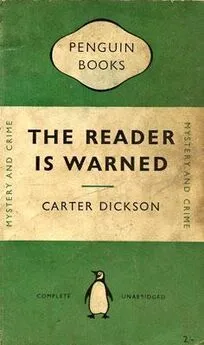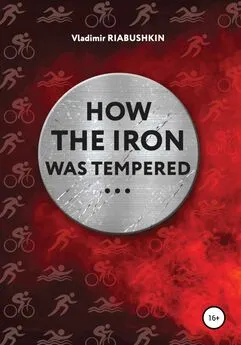John Steinbeck - Once there was a war
- Название:Once there was a war
- Автор:
- Жанр:
- Издательство:Viking Press
- Год:1958
- ISBN:нет данных
- Рейтинг:
- Избранное:Добавить в избранное
-
Отзывы:
-
Ваша оценка:
John Steinbeck - Once there was a war краткое содержание
Once there was a war - читать онлайн бесплатно полную версию (весь текст целиком)
Интервал:
Закладка:
THE STORY OF AN ELF
Monday, November 1, 1943 —This story could not be written if there were not witnesses—not vague unknown men, but Quentin Reynolds and H. R. Knickerbocker and Clark Lee and Jack Belden, who was hurt at Salerno, and John Lardner and a number of others who will come clamoring forward if anyone doubts the facts here to be presented.
The thing began when a British consul met Quentin Reynolds in the hall of the Alletti Hotel in Algiers. The consul was a small, innocent, well-mannered man who liked to think of the British and Americans as allies and who was willing to make amicable gestures. In good faith he asked Reynolds where he was staying and in equal good faith Reynolds replied that he had not yet been billeted.
“There’s an extra bed in my room,” the consul said. “You’re welcome to it if you like.”
That was the beginning, and what happened was nobody’s fault. It was just one of those accidents. The consul had a nice room with a balcony that overlooked the harbor and from which you could watch air raids. It wasn’t Reynolds’ fault. He accepted hospitality for himself, not for the nine other war correspondents who moved in with him. Nine is only a working number. Sometimes there were as many as eighteen. They slept on the floor, on the balcony, in the bathroom, and some even slept in the hall outside the door of Room 140, Alletti Hotel, Algiers.
It was generally agreed that the consul should have his own bed, that is, if he kept it. But let him get up to go to the bathroom and he returned to find Knickerbocker or Lee or Belden, or all three, in it. Another thing bothered the consul a little. Correspondents don’t sleep much at night. They talked and argued and sang so that the poor consul didn’t get much rest. There was too much going on in his room. He had to work in the daytime, and he got very little sleep at night. Toward the end of the week he took to creeping back in the middle of the afternoon for a nap. He couldn’t get his bed then. Someone always had it. But at three in the afternoon it was usually quiet enough so that he could curl up on the floor and get a little rest.
The foregoing is not the unbelievable part—quite the contrary. It is what follows that will require witnesses. It was during one of the all-night discussions of things in general that someone, perhaps Clark Lee, perhaps Dour Jack Belden, suggested that we were getting very tired of Algerian wine and wouldn’t it be nice if we had some Scotch. From that point on this is our story and we intend to stick to it.
Someone must have rubbed something, a ring or a lamp or perhaps the utterly exhausted British consul. At any rate, there was a puff of blue smoke and standing in the room was a small man with pointed ears and a very jolly stomach. He wore a suit of green leather and his cap and the toes of his shoes ended in sharp points and they were green too.
“Saints of Galway,” said Reynolds. “Do you see what I see?”
“Yes,” said Clark Lee,
“Well, do you believe it?”
“No,” said Lee, who is after all a realist and was at Corregidor.
Jack Belden has lived in China for many years and he knows about such things. “Who are you?” he asked sternly.
“I’m little Charley Lytle,” the elf said.
“Well, what do you want, popping in on us?” Belden cried.
The British consul groaned and turned over and pulled the covers over his head. Knickerbocker has since admitted that his first impulse was to kill the elf and stuff him to go beside the sailfish in his den. In fact, he was creeping up when Charley Lytle held up his hand.
“When war broke out I tried to enlist,” he said. “But I was rejected on political grounds. It isn’t that I have any politics,” he explained. “But the Army’s position is that if I did have, heaven knows what they would be. There hasn’t been a Republican leprechaun since Coolidge. So I was rejected pending the formation of an Elves-in-Exile Battalion. I decided then that I would just make people happy, soldiers and war correspondents and things like that.”
Reynolds’ eyes narrowed dangerously. He is very loyal. “Are you insinuating that we aren’t happy?” he gritted. “That my friends aren’t happy?”
“I’m not happy,” said the British consul, but no one paid any attention to him.
Little Charley Lytle said, “I heard some mention made of Scotch whisky. Now it just happens that I have—”
“How much?” said Clark Lee, who is a realist.
“Why, all you want.”
“I mean how much money?” Lee demanded.
“You don’t understand,” said little Charley. “There is no money involved. It is my contribution to the war—I believe you call it effort .”
“I’m going to kill him,” cried Knickerbocker. “Nobody can sneer at my war and get away with it.”
Reynolds said, “Could we get a case?”
“Surely,” said little Charley.
“Three cases?”
“Certainly.”
Lee broke in. “Now don’t you strain him. You don’t know what his breaking point is.”
“When can you deliver?” Reynolds asked.
Instead of answering, little Charley Lytle made a dramatic and slightly ribald gesture. There was one puff of smoke and he had disappeared. There followed three small explosions, like a series of tiny depth charges, and on the floor of Room 140 of the Alletti Hotel in Algiers lay three cases of Haig and Haig Pinch Bottle, ringed with the hot and incredulous eyes of a platoon of thirsty correspondents.
Reynolds breathed heavily the way a man does when he has a stroke. “A miracle!” he whispered. “A miracle straight out of the middle ages or Mary Roberts Rinehart.”
Dour Jack Belden has lived a long time in China. On top of a basic pessimism, he has seen everything and is difficult to impress. His eyes now wandered out the arched window to the sweltering streets and the steaming harbor below. “It’s a medium good trick,” he said. “But it’s a cold-weather trick. I’d like to give him a real test.” He ignored the growl of growing rage from his peers. “If this so-called Elf could produce a bottle of say La Batt’s Pale India Ale on a day like this, I’d say he was a commer—” He was interrupted by a slight fall of snow from the hot and fly-specked ceiling. Our eyes followed the lazy white flakes to the floor, where they fell on a box of slim-necked bottles. The snow swirled and spelled out Courtesy of Canada in the air.
I think Jack Belden went too far. He said lazily, “But is it cold?”
Reynolds flung himself forward and touched the neck of a bottle. “Colder than a (two words deleted by censor),” he said.
That night there was an air raid, and even the British consul enjoyed it. And anyone who doesn’t believe this story can ask any of the people involved, even dour Jack Belden.
MAGIC PIECES
November 3, 1943 —A great many soldiers carry with them some small article, some touchstone or lucky piece or symbol which, if they are lucky in battle, takes on an ever-increasing importance. And being lucky in battle means simply not being hurt. The most obvious magic amulets, of course, are the rabbits’ feet on sale in nearly all gift stores. St. Christopher medals are carried by Catholics and non-Catholics alike and in many cases are not considered as religious symbols at all, but as simple lucky pieces.
A novelty company in America has brought out a Testament bound in steel covers to be carried in the shirt pocket over the heart, a gruesome little piece of expediency which has faith in neither the metal nor the Testament but hopes that a combination may work. Many of these have been sold to parents of soldiers, but I have never seen one carried. That particular pocket is for cigarettes and those soldiers who carry Testaments, as many do, carry them in their pants pockets, and they are never considered as lucky pieces.
The magic articles are of all kinds. There will be a smooth stone, an odd-shaped piece of metal, small photographs encased in cellophane. Many soldiers consider pictures of their wives or parents to be almost protectors from danger. One soldier had removed the handles from his Colt .45 and had carved new ones out of Plexiglas from a wrecked airplane. Then he had installed photographs of his children under the Plexiglas so that his children looked out of the handles of his pistol.
Sometimes coins are considered lucky and rings and pins, usually articles which take their quality from some intimacy with people at home, a gift or the symbol of some old emotional experience. One man carries a locket his dead wife wore as a child and another a string of amber beads his mother once made him wear to ward off colds. The beads now ward off danger.
It is interesting that, as time in action goes on, these magics not only become more valuable and dear but become more secret also. And many men make up small rituals to cause their amulets to become active. A smooth stone may be rubbed when the tracers are cutting lines about a man’s head. One sergeant holds an Indian-head penny in the palm of his left hand and against the stock of his rifle when he fires. He is just about convinced that he cannot miss if he does this. The employment of this kind of magic is much more widespread than is generally known.
As time goes on, and dangers multiply and perhaps there is a narrow escape or so, the amulet not only takes on an increasing importance but actually achieves a kind of personality. It becomes a thing to talk to and rely on. One such lucky piece is a small wooden pig only about an inch long. Its owner, after having tested it over a period of time and in one or two tight places, believes that this little wooden pig can accomplish remarkable things. Thus, in a bombing, he held the pig in his hand and said, “Pig, this one is not for us.” And in a shelling, he said, “Pig, you know that the one that gets me, gets you.”
But in addition to simply keeping its owner safe from harm, this pig has been known to raise a fog, smooth out a high sea, procure a beefsteak in a restaurant which had not had one for weeks. It is rumored further that this pig in the hands of a previous owner has commuted an execution, cured assorted cases of illness, and been the direct cause of at least one considerable fortune. This pig’s owner would not part with him for anything.
The association between a man and his amulet becomes not only very strong but very private. This is partly a fear of being laughed at, but also a feeling grows that to tell about it is to rob it of some of its powers. Also there is the feeling that the magic must not be called on too often. The virtue of the piece is not inexhaustible. It can run down, therefore it is better to use it sparingly and only to call on it when the need is great.
Novelty companies have taken advantage of this almost universal urge toward magic. They turn out lucky rings by the thousands and coins and little figures, but these have never taken hold the way the associational gadgets do.
Whatever the cause of this reliance on magic amulets, in wartime it is so. And the practice is by no means limited to ignorant or superstitious men. It would seem that in times of great danger and great emotional tumult a man has to reach outside himself for help and comfort, and has to have some supra-personal symbol to hold to. It can be anything at all, an old umbrella handle or a religious symbol, but he has to have it. There are times in war when the sharpest emotion is not fear, but loneliness and littleness. And it is during these times that the smooth stone or the Indian-head penny or the wooden pig are not only desirable but essential. Whatever atavism may call them up, they appear and they seem to fill a need. The dark world is not far from us—from any of us.
Читать дальшеИнтервал:
Закладка:










